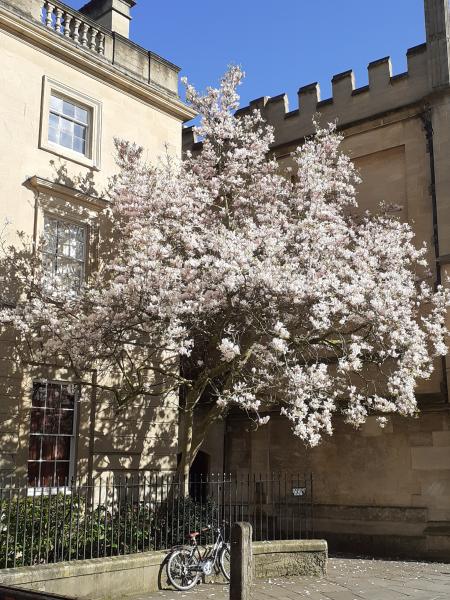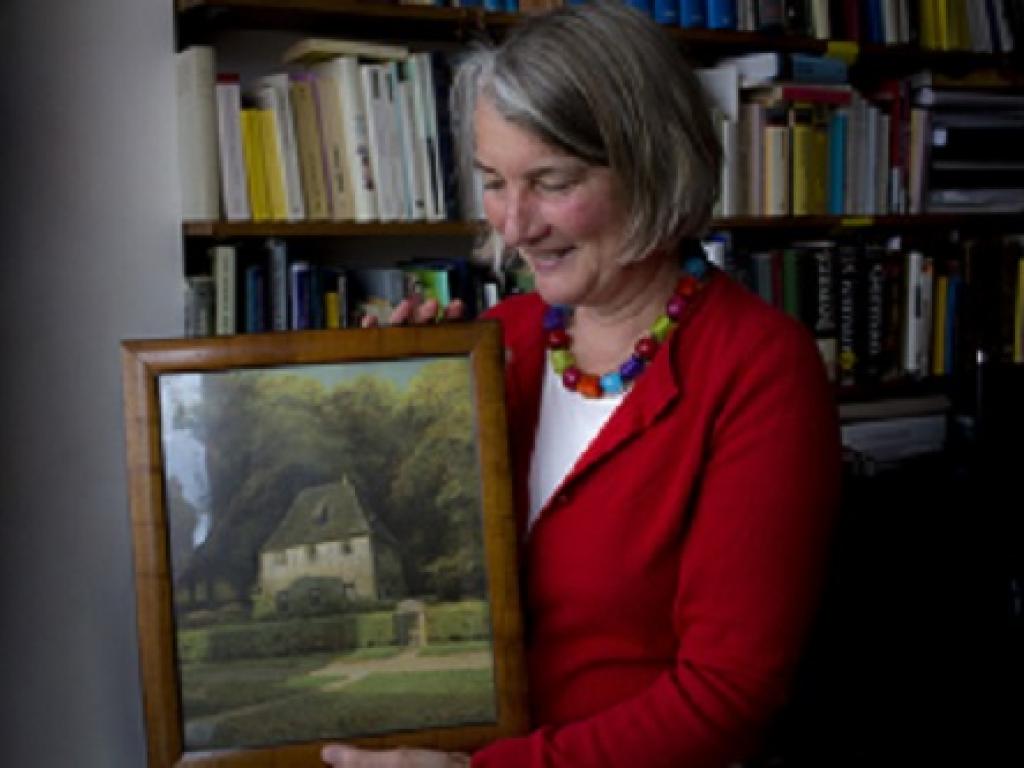
As I write, it is still unclear what the situation for Trinity Term may be; it looks as if we will have to wait until Easter for guidance on what will or won’t be permitted. Our hope is that as many students as possible may be able to return to Oxford, because we know how much difference that makes. Many undergraduates and graduates are studying remotely, some have been stranded in Oxford, all of them, like colleagues, appreciate the heroic efforts of our library staff in the Taylor Institution and the wider Bodleian, who have been resourceful in supplying books and articles. Like many of our academic and administrative staff, they have often had to juggle unusual and complicated situations. All have done so with good humour and commitment. Many students also express gratitude to their tutors: supporting students intellectually and personally is always part of their role, but in difficult circumstances, this personal relationship with a tutor is more important than ever before. We are grateful to have such a wonderful community around Modern Languages at Oxford.
As ever, our research is varied and exciting. We are particularly pleased that this has been recognised externally: I am now able to tell you that the future of the Taylor Chair of the German Language and Literature is secure, due to a philanthropic donation, match-funded by the University’s Endowment Challenge fund, from the Dieter-Schwarz-Stiftung. We are enormously grateful to them for their generosity. This will allow us to start the search for a successor to Ritchie Robertson, the current distinguished holder of the chair, and as endowment funding, it will also secure it for future generations. We are grateful and excited to be able to look at the future of German Studies, consolidating the exceptional breadth and range and branching out into new areas. Read more in one of the next issues!
This issue gives you a taste of the diversity of our research. Nupur Patel offers a wonderful insight into how her work on early modern French women writers has informed her approach to life. In a year in which we celebrate Dante’s 700th anniversary, Laura Banella introduces us to his writings beyond the famous Divine Comedy. Many of us long to be elsewhere—and who would turn down Paris? Julia Garayo Willemyns has just spent several months of lockdown there…dreaming of being in Rio de Janeiro but making the most of her time in the shade of the Eiffel tower.
We all miss travel. Many of us also miss live music. Philip Bullock’s frequent collaborations with musicians at the Wigmore Hall, Garsington Opera or the Oxford Lieder Festival have seen him introduce many a concert and pen numerous programme notes. He writes about two recent collaborative volumes on literature and music.
A means of escaping is by listening to podcasts. Many members of the Faculty take part in Radio programmes. You may have heard them for instance on In Our Time on BBC Radio 4 or The Essay on the BBC World Service (hosted by Oxford Modern Languages graduate Bridget Kendall). To learn more about what students might read, Christy Calloway-Gale encourages you to listen in to the podcasts the Spanish Sub-Faculty has been preparing and Emma Bridges, our current Schools and Liaison Officer, tells us about a series of successful events reaching out to pupils across the country via Teams and Zoom.
Reaching out virtually across the continents is something many of our researchers do. Did you have any idea about how active the Latin-American Arabic poetry scene is nowadays? Minying Huang is bringing it to the fore in her doctorate. Alexandra Vukovich is looking East and showing that there is such a thing as a Muscovite Renaissance which is not without links to Byzantium.
As these examples show, there is a wealth of talent and originality in the Faculty. At a time when so many of our everyday activities are constrained, it is a reason for rejoicing.

Best wishes,
Professor Almut Suerbaum
Chair of the Faculty of Medieval and Modern Languages